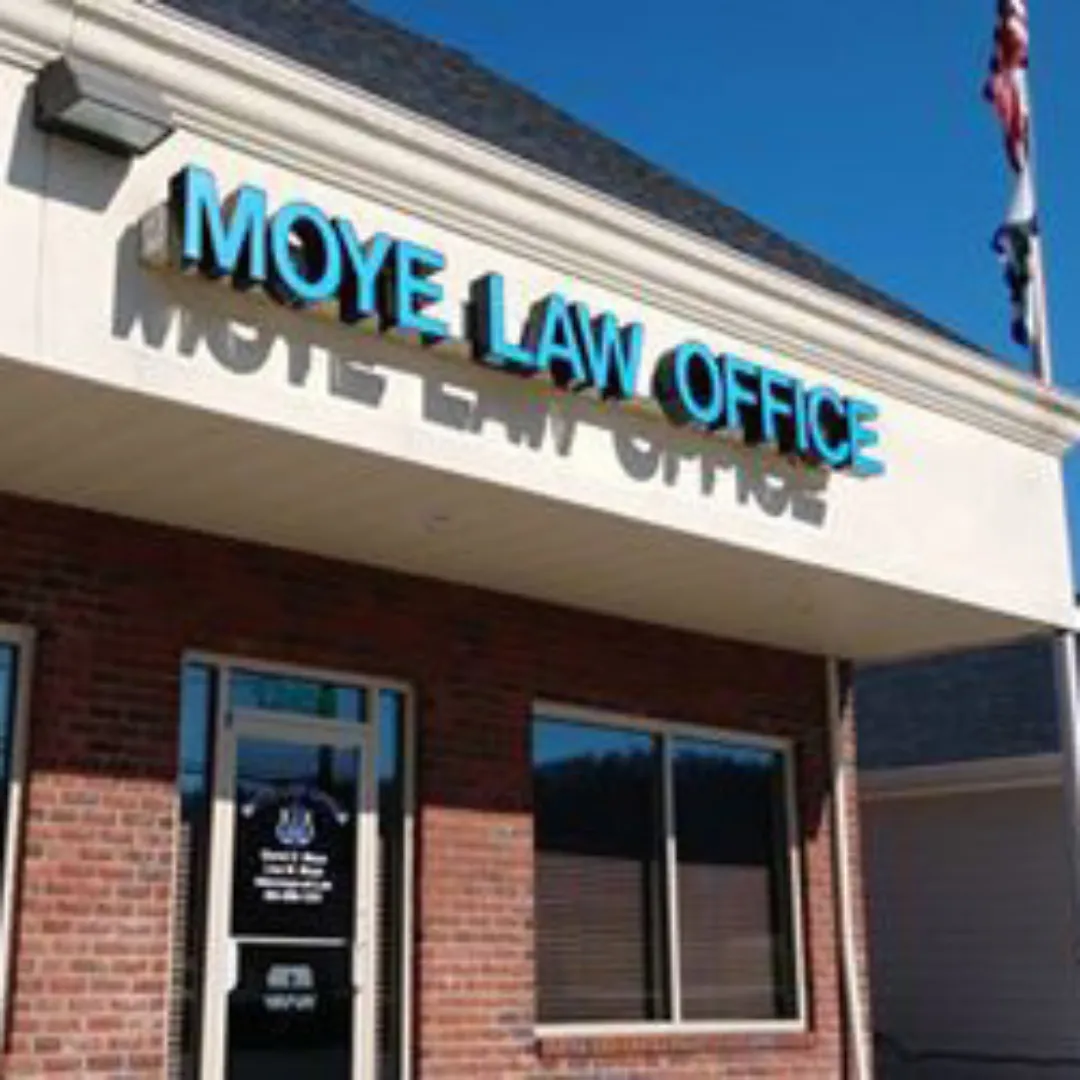
Blog
Blog

Securing Your Investment: August 2024 Real Estate Insights
This month, we're focusing exclusively on real estate law. Whether you're buying, selling, or managing property, our goal is to provide you with valuable insights and practical tips to help you navigate the complexities of real estate transactions.
In This Blog:
Understanding Real Estate Fraud: Common Schemes and Red Flags
How to Protect Your Property from Title Fraud
The Role of Due Diligence in Safeguarding Your Investments
What to Do If You Suspect Real Estate Fraud
Understanding Real Estate Fraud: Common Schemes and Red Flags
Real estate fraud is a growing concern that can have devastating financial consequences. Here are some common schemes and red flags to watch out for:
Title Fraud: This occurs when someone forges documents to transfer ownership of your property without your knowledge. Warning signs include unexpected changes in your property records or receiving mail addressed to someone else at your property.
Mortgage Fraud: Fraudsters may falsify information on mortgage applications or deceive lenders into approving loans based on incorrect data. Be wary of "too good to be true" loan offers or pressure tactics to sign documents without proper review.
Foreclosure Rescue Scams: These scams target homeowners facing foreclosure, promising to save their homes in exchange for upfront fees. Instead, the fraudsters often take the money and disappear, leaving the homeowner in a worse situation.
Rental Scams: Scammers may advertise properties they don’t own or have the right to rent, collecting deposits from unsuspecting tenants. Red flags include rental listings with unusually low prices or landlords who refuse to meet in person.
Home Improvement Scams: Fraudulent contractors may offer to do repairs or renovations, take a large deposit, and then either do subpar work or vanish altogether. Always verify contractor credentials and avoid paying large sums upfront.
Wire Fraud: Hackers may intercept emails between buyers, sellers, and real estate agents, altering wiring instructions to divert funds to their own accounts. Always verify wiring instructions directly with your trusted parties before transferring funds.
Stay vigilant and report any suspicious activity to the authorities and your legal advisor immediately.
How to Protect Your Property from Title Fraud
Title fraud can result in the loss of your property if not caught early. Here’s how you can protect yourself:
Title Insurance: Purchase title insurance to protect against potential title defects or claims against your property. This can provide financial protection if someone tries to claim ownership.
Monitor Property Records: Regularly check your property’s records with your local county recorder’s office to ensure no unauthorized changes have been made.
Keep Personal Information Secure: Protect your personal and financial information to prevent identity theft, which is often a precursor to title fraud.
Be Cautious with Power of Attorney: If you grant someone power of attorney over your property, ensure it’s someone you trust implicitly and limit the scope of their authority.
Review Documents Carefully: Always read and review any documents related to your property, especially those involving transfers of ownership. Look out for inconsistencies or unfamiliar terms.
Consider a Trust: Placing your property in a trust can add an extra layer of protection, making it more difficult for fraudsters to access or transfer the title.
Seek Legal Advice: Consult with a real estate attorney if you’re unsure about any aspect of your property’s title or if you suspect fraudulent activity.
Have concerns about your property’s title? Contact us for a thorough review and legal guidance.
The Role of Due Diligence in Safeguarding Your Investments
Due diligence is crucial in any real estate transaction, whether you’re buying, selling, or investing. Here’s how it protects your investment:
Property Inspection: A thorough inspection can reveal hidden issues, such as structural problems, pest infestations, or code violations. Addressing these issues early can save you from costly repairs later.
Title Search: Conduct a title search to verify the property’s ownership history and check for any liens, encumbrances, or disputes. This ensures you’re buying a property with a clear title.
Financial Review: If purchasing an investment property, review the property’s financials, including rental income, operating expenses, and any outstanding debts. This helps you assess the true value of the investment.
Zoning and Land Use: Ensure the property is zoned for your intended use and that there are no restrictions that could affect your plans. Understanding local land use regulations can prevent legal issues down the road.
Environmental Assessments: Depending on the property’s location, you may need an environmental assessment to check for contamination or other environmental concerns. This is particularly important for commercial properties.
Neighborhood Analysis: Research the neighborhood’s growth trends, crime rates, and future developments. A stable and growing neighborhood can increase your property’s value over time.
Review of Contracts: Carefully review all contracts related to the transaction, including purchase agreements, lease agreements, and loan documents. Ensure all terms are clear and fair.
Need help with due diligence? Our experienced team can guide you through the process.
What to Do If You Suspect Real Estate Fraud
If you suspect you’re a victim of real estate fraud, it’s crucial to act quickly:
Contact Your Attorney: Reach out to a real estate attorney immediately to discuss your concerns and determine the best course of action.
Notify the Authorities: Report the fraud to local law enforcement, the FBI, or your state’s attorney general’s office. They can initiate an investigation into the fraudulent activity.
Inform Your Title Insurance Company: If you have title insurance, notify your insurance company to start a claim. They can assist in recovering your property or compensating for losses.
Gather Evidence: Collect all relevant documents, communications, and records related to the suspected fraud. This evidence will be crucial in building your case.
Monitor Your Credit and Identity: If the fraud involves identity theft, monitor your credit report and consider placing a fraud alert or credit freeze to prevent further damage.
Consult with Experts: Depending on the situation, you may need to consult with forensic accountants, private investigators, or other experts to uncover the extent of the fraud.
Our legal team is ready to assist you if you suspect real estate fraud. Don’t hesitate to reach out for support.
Moye Law Offices
We have two offices in West Virginia: Winfield and Cross Lanes.

CROSS LANES

Securing Your Investment: August 2024 Real Estate Insights
This month, we're focusing exclusively on real estate law. Whether you're buying, selling, or managing property, our goal is to provide you with valuable insights and practical tips to help you navigate the complexities of real estate transactions.
In This Blog:
Understanding Real Estate Fraud: Common Schemes and Red Flags
How to Protect Your Property from Title Fraud
The Role of Due Diligence in Safeguarding Your Investments
What to Do If You Suspect Real Estate Fraud
Understanding Real Estate Fraud: Common Schemes and Red Flags
Real estate fraud is a growing concern that can have devastating financial consequences. Here are some common schemes and red flags to watch out for:
Title Fraud: This occurs when someone forges documents to transfer ownership of your property without your knowledge. Warning signs include unexpected changes in your property records or receiving mail addressed to someone else at your property.
Mortgage Fraud: Fraudsters may falsify information on mortgage applications or deceive lenders into approving loans based on incorrect data. Be wary of "too good to be true" loan offers or pressure tactics to sign documents without proper review.
Foreclosure Rescue Scams: These scams target homeowners facing foreclosure, promising to save their homes in exchange for upfront fees. Instead, the fraudsters often take the money and disappear, leaving the homeowner in a worse situation.
Rental Scams: Scammers may advertise properties they don’t own or have the right to rent, collecting deposits from unsuspecting tenants. Red flags include rental listings with unusually low prices or landlords who refuse to meet in person.
Home Improvement Scams: Fraudulent contractors may offer to do repairs or renovations, take a large deposit, and then either do subpar work or vanish altogether. Always verify contractor credentials and avoid paying large sums upfront.
Wire Fraud: Hackers may intercept emails between buyers, sellers, and real estate agents, altering wiring instructions to divert funds to their own accounts. Always verify wiring instructions directly with your trusted parties before transferring funds.
Stay vigilant and report any suspicious activity to the authorities and your legal advisor immediately.
How to Protect Your Property from Title Fraud
Title fraud can result in the loss of your property if not caught early. Here’s how you can protect yourself:
Title Insurance: Purchase title insurance to protect against potential title defects or claims against your property. This can provide financial protection if someone tries to claim ownership.
Monitor Property Records: Regularly check your property’s records with your local county recorder’s office to ensure no unauthorized changes have been made.
Keep Personal Information Secure: Protect your personal and financial information to prevent identity theft, which is often a precursor to title fraud.
Be Cautious with Power of Attorney: If you grant someone power of attorney over your property, ensure it’s someone you trust implicitly and limit the scope of their authority.
Review Documents Carefully: Always read and review any documents related to your property, especially those involving transfers of ownership. Look out for inconsistencies or unfamiliar terms.
Consider a Trust: Placing your property in a trust can add an extra layer of protection, making it more difficult for fraudsters to access or transfer the title.
Seek Legal Advice: Consult with a real estate attorney if you’re unsure about any aspect of your property’s title or if you suspect fraudulent activity.
Have concerns about your property’s title? Contact us for a thorough review and legal guidance.
The Role of Due Diligence in Safeguarding Your Investments
Due diligence is crucial in any real estate transaction, whether you’re buying, selling, or investing. Here’s how it protects your investment:
Property Inspection: A thorough inspection can reveal hidden issues, such as structural problems, pest infestations, or code violations. Addressing these issues early can save you from costly repairs later.
Title Search: Conduct a title search to verify the property’s ownership history and check for any liens, encumbrances, or disputes. This ensures you’re buying a property with a clear title.
Financial Review: If purchasing an investment property, review the property’s financials, including rental income, operating expenses, and any outstanding debts. This helps you assess the true value of the investment.
Zoning and Land Use: Ensure the property is zoned for your intended use and that there are no restrictions that could affect your plans. Understanding local land use regulations can prevent legal issues down the road.
Environmental Assessments: Depending on the property’s location, you may need an environmental assessment to check for contamination or other environmental concerns. This is particularly important for commercial properties.
Neighborhood Analysis: Research the neighborhood’s growth trends, crime rates, and future developments. A stable and growing neighborhood can increase your property’s value over time.
Review of Contracts: Carefully review all contracts related to the transaction, including purchase agreements, lease agreements, and loan documents. Ensure all terms are clear and fair.
Need help with due diligence? Our experienced team can guide you through the process.
What to Do If You Suspect Real Estate Fraud
If you suspect you’re a victim of real estate fraud, it’s crucial to act quickly:
Contact Your Attorney: Reach out to a real estate attorney immediately to discuss your concerns and determine the best course of action.
Notify the Authorities: Report the fraud to local law enforcement, the FBI, or your state’s attorney general’s office. They can initiate an investigation into the fraudulent activity.
Inform Your Title Insurance Company: If you have title insurance, notify your insurance company to start a claim. They can assist in recovering your property or compensating for losses.
Gather Evidence: Collect all relevant documents, communications, and records related to the suspected fraud. This evidence will be crucial in building your case.
Monitor Your Credit and Identity: If the fraud involves identity theft, monitor your credit report and consider placing a fraud alert or credit freeze to prevent further damage.
Consult with Experts: Depending on the situation, you may need to consult with forensic accountants, private investigators, or other experts to uncover the extent of the fraud.
Our legal team is ready to assist you if you suspect real estate fraud. Don’t hesitate to reach out for support.
Moye Law Offices
We have two offices in West Virginia:
Winfield and Cross Lanes.

CROSS LANES
We Are Here To Help
Do you have a query or problem that you would like to talk about, or are you curious to hear more about how we can help you?
Get in touch today! We look forward to hearing from you.
Assistance Hours
Monday – Friday: 8:30am – 4:30pm
Saturday: By appointment only
Sunday: CLOSED
Subscribe to our Newsletter
We Are Here To Help
Do you have a query or problem that you would like to talk about, or are you curious to hear more about how we can help you?
Get in touch today! We look forward to hearing from you.
Assistance Hours
Monday – Friday 8:30am – 4:30pm
Saturday: By appointment only
Sunday CLOSED

